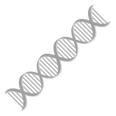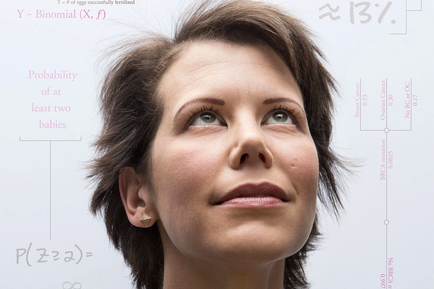Breast Cancer Prevention
My research focus lies at the intersection of medical decision-making and optimization, and aims to help high-risk patients make better decisions regarding breast cancer prevention and treatment. One in eight women develops breast cancer in her lifetime, and for those with a BRCA genetic mutation, the risk jumps to 60-80%. These women face many difficult decisions related to cancer prevention, early diagnosis, preferred treatment options, and post-cancer survivorship. In particular, female BRCA mutation carriers must decide whether to undergo preventive surgeries to reduce the risks of developing breast and ovarian cancer—and at what age. We develop a finite-horizon stochastic dynamic program, where the state space includes a woman's age and various health states before and after a cancer diagnosis, and the actions correspond to surgery choices (prophylactic bilateral mastectomy or ovary removal). We exploit the structural properties of a simplified version, analytically derive monotone policies, and then solve the full problem by converting it to an infinite-horizon model and solving via linear programming. We compute the optimal policy to maximize quality-adjusted life expectancy (e.g., BRCA1 mutation carriers to undergo bilateral mastectomy between ages 30 and 60; and ovary removal anytime after age 40), and we conduct a wide range of sensitivity analyses.
Was Angelina Jolie Right? Optimizing Cancer Prevention Strategies among BRCA Mutation Carriers
Eike Nohdurft, Elisa F. Long, Stefan Spinler
Decision Analysis, 2017, Sep:14(3):139-169
Eike Nohdurft, Elisa F. Long, Stefan Spinler
Decision Analysis, 2017, Sep:14(3):139-169
- Special Recognition Award (annual award for paper most worthy of recognition), Decision Analysis, 2017
We develop a simple decision-tree model to evaluate the health benefits and costs of offering universal BRCA genetic testing to all women. At a current test price of $4,000 and very low prevalence—only 1 in 400 women carry a BRCA mutation—we find that it is not cost-effective to screen all women, alhough it would be cost-saving to screen women of Ashkenazi Jewish descent, among whom 1 in 50 carry a mutation. If a widely available genetic test drops to below $250, however, then universal BRCA screening appears cost-effective.
Cost-effectiveness of Universal BRCA1/2 Screening [Appendix]
Elisa F. Long, Patricia A. Ganz
JAMA Oncology, 2015, Sep:1-2
featured in New York Magazine and UCLA Newsroom
Elisa F. Long, Patricia A. Ganz
JAMA Oncology, 2015, Sep:1-2
featured in New York Magazine and UCLA Newsroom

